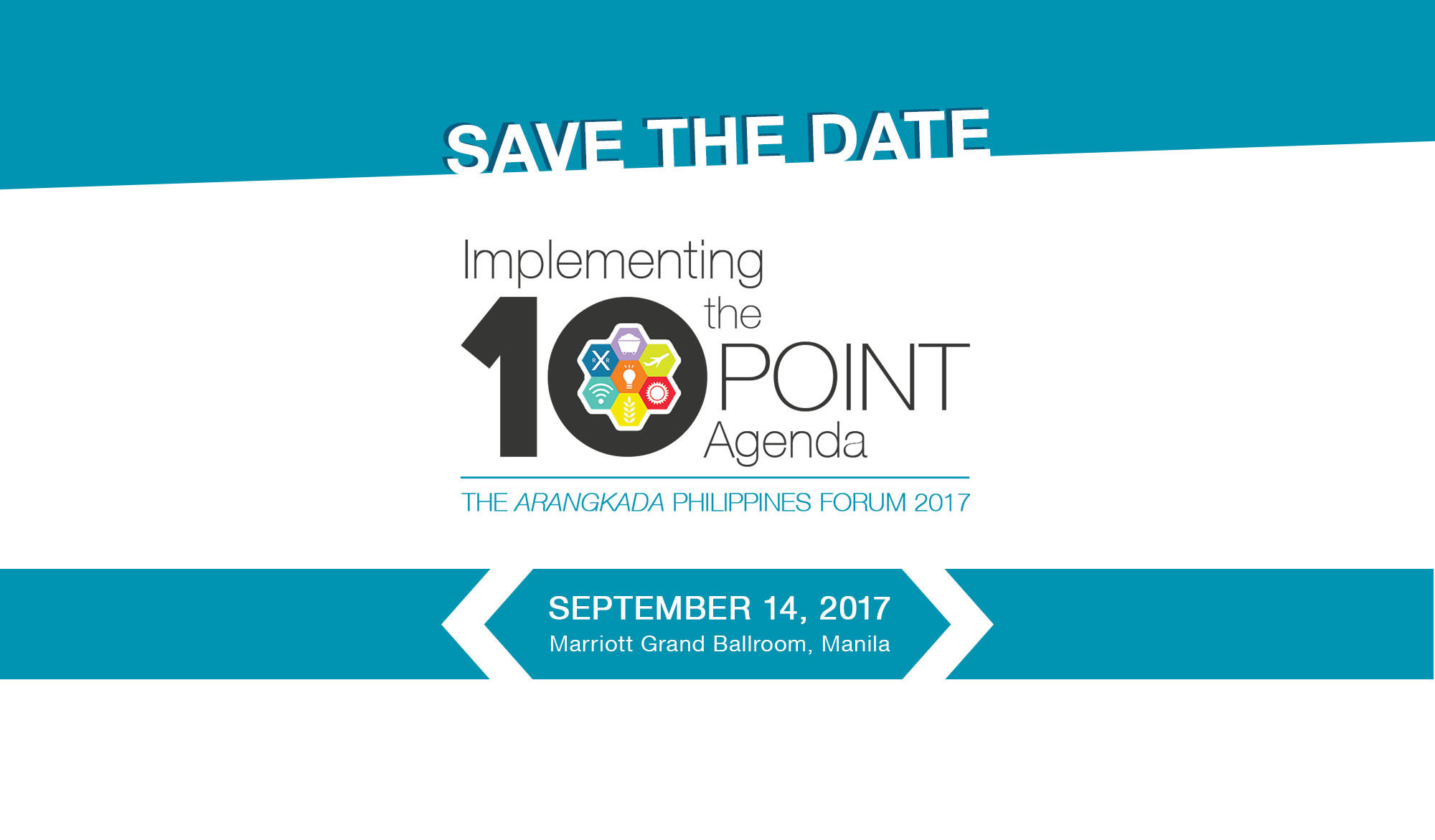
During the very well attended Arangkada Forum on September 14, there was much focus on sectors with substantial growth potential—including agriculture, creative industries, information and communications technology, manufacturing, mining, logistics and tourism. But—not surprisingly—the cost of doing business, judicial issues and corruption were raised in many panel discussions.
 In building a competitive business environment, judicial and anticorruption policies are very important to attract and to keep investors. Reforms in the administration of justice are ongoing, but their implementation should be continuously intensified.
In building a competitive business environment, judicial and anticorruption policies are very important to attract and to keep investors. Reforms in the administration of justice are ongoing, but their implementation should be continuously intensified.
Some of the problematic factors in the WEF competitiveness ranking pertained to the judicial and security problems that afflict the Philippines. According to the WEF ratings, investors also identified corruption (16.9 percent), policy instability (7 percent) and crime and theft (3 percent). The Supreme Court and the judicial system it administers face major challenges, such as case backlog, using modern technology and obtaining more funding. These are factors that investors very much consider before they invest in a particular country and comprises of what makes a country competitive.
Clogged courts have long been an issue in the Philippine judiciary system. It often takes numerous years to have a case decided and, as new cases come every year, caseloads have piled up. Major reforms have been introduced under the leadership of Chief Justice Maria Lourdes A. Sereno, including computerization of decisions, court records and continuous trials.
Corruption has long been a major concern for doing business in the country. Only in recent years has it moved down from first to third place in the WEF assessment to be slightly below red tape and poor infrastructure. In the Transparency International annual Corruption Perception Index the Philippines improved from 134th in 2010 to 101st in 2016, yet is still ranked in the bottom 50 percent, along with Indonesia, Thailand and Vietnam.
The Arangkada Team has listed 26 recommendations; I have taken the liberty to reduce the recommendations a bit:
- Continue to increase judicial salaries and hire more judges, encouraging new judges to reduce the case backlog more. Steadily raise the budget for the judicial branch.
- Make greater use of alternative dispute resolution and arbitration to resolve civil disputes outside of courts, which should reduce the backlog of cases and hasten justice.
- Reduce the caseload of the Supreme Court by limiting acceptance of cases largely to cases involving national issues.
- The Ombudsman should improve its capability to investigate and prosecute allegations of corruption against public officials. The Sandiganbayan should reduce its backlog of cases and increase it conviction rate.
- Pass amendments to the Ombudsman Act to Strengthen the Ombudsman as an Institution, Upgrading of Ombudsman Employee Skills, Augmenting Compensation and Benefits, and Enhancing Fiscal Autonomy.
- The government must demonstrate through consistent example that it has the political will to greatly reduce corruption. Investigating, bringing charges against and successfully prosecuting government officials and private-sector persons and corporations guilty of not paying proper taxes, bribery and other major corrupt acts must be sustained.
- Public officials and private persons found guilty of major corrupt activities should, after a fair trial, be punished with heavy sentences, including imprisonment and seizure of assets.
- Strengthen the anticorruption legal framework by passing: a) anti-Graft and Corrupt Practices Act amendments; b) Witness Protection Act; and c) Whistleblowers Protection Act.
- Pass laws to exempt BIR and BOC employees from the Salary Standardization Act (or, better, privatize the activities of both government organizations).
- Appropriate resources should be provided to the justice- sector actors to support the fair administration of justice.
- Strengthen economic justice. Establish and enhance special courts that will address specific cases and pursue contract enforcement. For instance, infrastructure courts, commercial courts, cybercrime courts and environmental courts.
- Streamline rules on the disposition of land cases. The Supreme Court should study the need to designate special courts on land- dispute settlement.
- Raise scientific-investigation capabilities and strengthen witness and whistleblower
protection. - Reinforce alternative ADR mechanisms so that courts can refer cases for ADR and help in the speedy disposition of cases.
- Information and communication technology should be used sector-wide to help address fragmentation in the justice system and greatly enhance the information management of the whole justice sector.
There is no doubt that good intensions by the government and the private sector are not enough; judicial reform and anticorruption initiatives are needed to successfully implement the 10-point socioeconomic agenda of the Duterte administration.
Image Credits: Skypixel | Dreamstime
Source: https://businessmirror.com.ph/judicial-issues-and-corruption/
